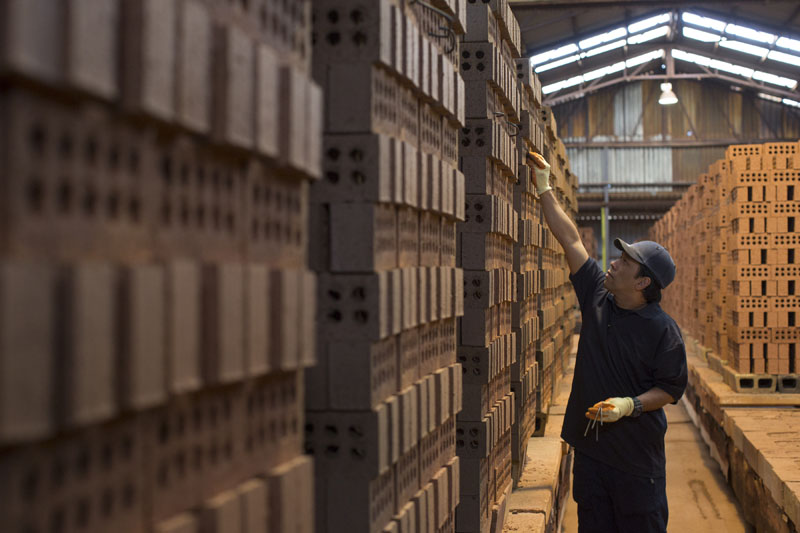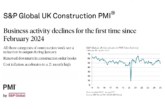
With a focus on the implications for the merchant sector arising from its acquisition of the Lagan Group last year, Mark Morris, Commercial Director – Products for Breedon Group, argues that consolidation in the construction industry does not have to be a swear word.
The construction industry is notoriously resistant to change, even when it is obviously for the better rather than for the sake of. Why else would off-site manufacturing and initiatives like BIM and DfMA (Design for Manufacture and Assembly) still be so hard to get off the ground?
The fall of the mighty Carillion, and on-going payment issues between main and sub-contractors, has only served to reinforce the belief that bigger is not necessarily better when it comes to the backbone of building.
Since Breedon acquired the Lagan Group in April the message to existing and new customers has been very much one of reassurance, that nothing is going to change and it is business as usual. But of course, it isn’t. It’s going to be better. And why shouldn’t it?
Acquiring the Lagan Group’s portfolio of products (Aggregates, Cement, Ready Mix concrete, Concrete Tile, Clay Brick, Natural Slate) gives a greater presence in the builders’ merchant market, and despite the challenges of the sector, the acquisition of Lagan by Breedon is set to benefit all. How?
Firstly, while the term “One stop shop” may smack of consolidation, it does actually mean that merchant and contractor customers will not only have more options for materials that might otherwise be in short supply — for instance, roofing tiles and clay brick — but also for their supply or delivery from one source.
The industry’s increased focus on its carbon footprint has partly been met by liaising with haulage and logistics suppliers to move mixed loads more mainstream. That is not just concrete tiles of a different profile or colour, or any brick type from the same plant, but bricks, blocks and roofing tiles from the Breedon/Lagan portfolio.
It is not just the product mix of the new joint business that enables this. With two cement plants, around 80 quarries, 40 asphalt plants, 170 ready-mixed concrete and mortar plants, nine concrete and clay production plants, four contract surfacing businesses, six import/export terminals and two slate production facilities, the geographical footprint is maximised for distribution.
This, and nearly 900 million tonnes of mineral reserves and resources, means the supply issues currently dominating the sector are not being felt to quite the extent that others are experiencing. For instance, cement from Ireland via the north west of England can be delivered within 3-4 days. Similarly, customer requirements from the Dagenham bagging plant to London and the south-east are met within 1-3 days and clay bricks shipped over from Ireland arrive within four days. That compares favourably with the major manufacturers.
Over the past two years the demand for building materials — particularly roofing tiles — has increased for many reasons, so that there has been an industry shortage. But with a customer base which has been given a minimum commitment which they know they can get, customers benefit from knowing where they stand. This, in turn, helps future planning and with the conversations they undoubtedly have with their customers.
And this is down to relationships — something consolidation in the industry is not normally known for engendering.
As well as product availability, industry trends are also putting pressure on product development. Rising house prices and housing shortages are forcing many people to ‘move away from moving up’ the housing ladder to extending their existing home. Combined with the closure of many brickworks over the past few years, this has put increasing pressure on the RMI market.
With this in mind, several new brick types are set to come to market including an increased range of 73mm bricks for the RMI sector — a particular need identified through relationships with industry organisations — as well as 65mm ones in different colours and textures for the new-build and RMI sectors. Tumbled bricks are also being trialled.
Bricks apart, a dry ridge roofing system will also be introduced whilst the Welsh Slate architectural products for cladding, flooring, paving, landscaping and walling will be brought to a wider audience.
The new portfolio under Breedon will enable the cross-selling of products from the former Lagan line as well as the promotion of products outside of their typical geographical boundaries — for example, Welsh Slate’s landscaping and walling which was formerly sold predominately in North Wales.
The current lack of investment in the industry at the moment, perhaps partly because it is very difficult to get planning permission to build new brick or tile works, requires the optimisation of existing plant — and, with a few tweaks to production processes, demand for roof tiles is being met.
The builders’ merchant market is particularly nervous about consolidation affecting pricing and servicing, but there is so much experience in the organisation now that the greater options available in terms of products and supply should be recognised. Indeed, we feel the best thing a construction supplier of any size can do is ask themselves, if they were a merchant or specifier, what would be in it for them…?
For more information on the expanded Breedon/Lagan portfolio, visit www.breedongroup.com.









